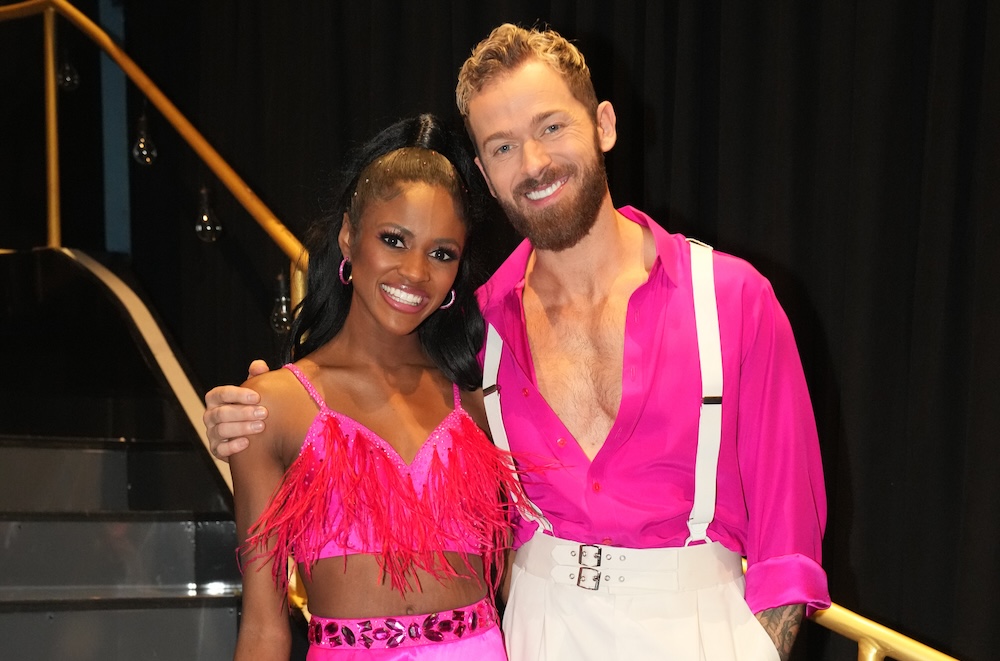Charity Lawson’s candid reflections on ‘Dancing With the Stars’
A journey through reality TV
Charity Lawson, known for her appearances on “The Bachelor” and “The Bachelorette,” recently opened up about her experience on Season 32 of “Dancing With the Stars” (DWTS). During an episode of Cheryl Burke’s podcast, “Sex, Lies and Spray Tans,” Lawson shared her thoughts on the mental health challenges she faced while participating in the show.
The need for mental health support
As a therapist, Lawson expressed her surprise that DWTS does not have a therapist on set. “I’m surprised you guys don’t. Honestly, I’m very surprised because quite literally, while ‘Dancing With the Stars’ was great, I literally went through hell and back with my mental health in that show,” she revealed. The intense pressure and scrutiny took a significant toll on her well-being.
Facing unexpected challenges
Lawson, who was partnered with Artem Chigvintsev and finished in fourth place, experienced a great deal of bullying during her time on the show. Despite her expectations that the DWTS audience would be kinder than those of “The Bachelor” and “The Bachelorette,” she found the reality to be quite the opposite. “I came into the ‘Dancing With the Stars’ fanbase like, ‘This is going to be a piece of cake,’ only to be… almost to the point where it was so much worse than ‘Bachelor’ and ‘Bachelorette,'” she said.
The harsh reality of online bullying
The bullying Lawson faced was severe, with death threats and hateful comments flooding her social media accounts and the official DWTS page. “I was getting death threats for existing… for not performing enough, for being conceited, for being entitled, for being the biggest bitch on the cast. It’s crazy,” she shared. The relentless negativity led her to block and filter comments on her own page, but she had no control over the comments on the show’s page.
The impact of race and representation
Lawson also highlighted the unique challenges she faced as a Black woman on a reality TV show. “I just had to suppress it and it got to the point where I was like, I’m just trying to survive. I’m just trying to make it out of the season… There were weeks where I’d come home from rehearsal where I’m like, I literally hope I forget my steps and get voted off… It’s a really dark place,” she said, tearing up during the interview.
The politics of reality TV
Cheryl Burke, who competed on 25 seasons of DWTS, discussed the politics involved in the show, particularly the way video packages are edited. Lawson agreed, noting that her interviews were often shaped to make her appear boastful. “It’s shaped this way that I was boasting and bragging about my scores but I’m only talking about them because you guys asked me,” she explained. This skewed portrayal contributed to the negative perception of her among viewers.
Reflecting on the experience
When asked if she felt that her race affected the outcome of DWTS, Lawson simply responded, “Yeah.” Her candid reflections shed light on the broader issues of representation and mental health in reality TV, highlighting the need for better support systems for contestants.
For more insights into Charity Lawson’s journey, you can listen to the full podcast episode on Sex, Lies and Spray Tans.
Personal reflections for cinema, TV series, and music enthusiasts
As a fan of cinema, TV series, and music, it’s essential to recognize the human experiences behind the entertainment we consume. Charity Lawson’s story is a poignant reminder of the pressures and challenges faced by reality TV contestants. It’s easy to get caught up in the drama and excitement of these shows, but we must remember the real people behind the screen.
Exploring the impact of reality TV
Reality TV has become a significant part of our cultural landscape, offering a mix of entertainment and voyeurism. Shows like “The Bachelor,” “The Bachelorette,” and “Dancing With the Stars” captivate audiences with their blend of romance, competition, and personal stories. However, the intense scrutiny and public judgment can have profound effects on the mental health of participants.
The role of mental health support
Lawson’s call for on-set therapists in reality TV highlights a critical need for mental health support in high-pressure environments. Contestants often face immense stress, public criticism, and personal challenges, making it essential to provide adequate resources to help them cope.
The importance of representation
Lawson’s experience also underscores the importance of representation and the unique challenges faced by people of color in the entertainment industry. Her story serves as a reminder that we must continue to advocate for diversity and inclusion in all forms of media.
Engaging with content responsibly
As viewers, we have a responsibility to engage with content thoughtfully and compassionately. It’s crucial to remember that the people we see on screen are real individuals with their own struggles and emotions. By fostering a culture of empathy and understanding, we can help create a more supportive and inclusive entertainment landscape.
For those interested in exploring more about the impact of reality TV and the experiences of contestants, consider watching documentaries and reading articles that delve into these topics. Engaging with diverse perspectives can enrich our understanding and appreciation of the entertainment we love.
Additional resources
For more information on the shows mentioned in this article, you can check out the following links:
By exploring these resources, you can gain a deeper understanding of the shows and the experiences of their contestants.

 Italian
Italian







